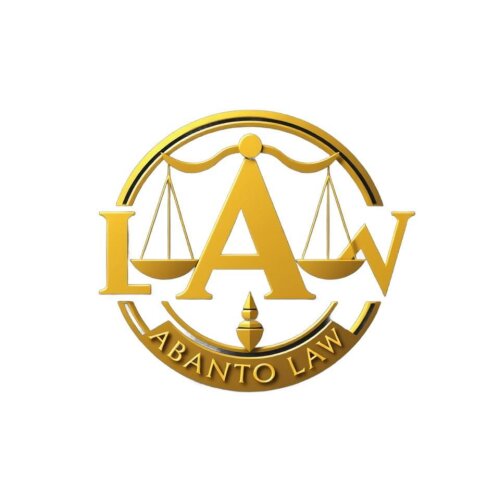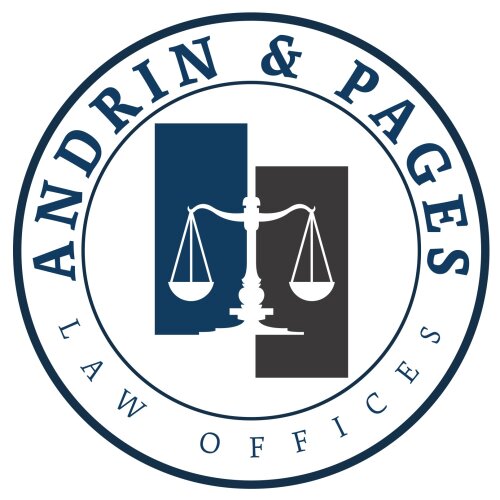Best State, Local, and Municipal Law Lawyers in Philippines
Share your needs with us, get contacted by law firms.
Free. Takes 2 min.
Or refine your search by selecting a city:
List of the best lawyers in Philippines

Dagsaan Monterde Castillo Law and Notary Public (DMC LAW)
15 minutes Free ConsultationAbout State, Local, and Municipal Law in the Philippines
State, local, and municipal law in the Philippines is an area of law that governs the operations, powers, and responsibilities of local government units (LGUs) such as provinces, cities, municipalities, and barangays. This body of law is primarily outlined in the Local Government Code of 1991, which delegates certain governmental powers to these local entities to promote decentralization and local autonomy. It covers various aspects, including finance, development planning, accountability, social welfare, environment, and more.
Why You May Need a Lawyer
There are several situations where individuals or organizations may require legal advice or representation in dealing with state, local, and municipal law matters. Some common scenarios include:
- Understanding local ordinances and how they affect business operations or personal activities.
- Resolving disputes involving local government regulations or services.
- Acquiring or contesting permits and licenses issued by LGUs.
- Challenges related to zoning laws, land use, and property disputes.
- Interacting with local government officials or agencies in compliance, taxation, or governance matters.
Local Laws Overview
Local laws in the Philippines cover a broad spectrum of areas that are particularly important to daily life and business. Key aspects include:
- Local Ordinances: These are regulations enacted by the local legislative body (such as city or municipal councils) that address specific community needs and issues, catering to local contexts.
- Zoning and Land Use: Local governments establish zoning laws to designate land use for residential, commercial, industrial, or agricultural purposes. These laws guide development and construction.
- Licensing and Permits: Businesses often require local permits and licenses for operation, such as business permits, building permits, and sanitary permits.
- Environmental Regulations: Local governments enforce various environmental protection laws, including those against pollution, waste disposal, and conservation efforts.
- Taxation: LGUs have the authority to impose local taxes, fees, and charges, which are important for municipal revenue.
Frequently Asked Questions
What is the Local Government Code of 1991?
The Local Government Code of 1991 is a Philippine law that provides the framework for the governance and functions of local government units, emphasizing decentralization and local autonomy.
Who can draft a local ordinance?
Local ordinances are drafted and enacted by the legislative arm of the local government, such as city or municipal councils. These bodies are composed of elected officials from the local community.
How can I challenge a local ordinance?
To challenge a local ordinance, you can file a petition in the appropriate court, claiming that the ordinance is unconstitutional or exceeds the powers of the local government unit.
What are the consequences of not complying with local zoning laws?
Non-compliance with zoning laws may result in penalties, legal actions, or mandates to cease activities violating these regulations. It can also lead to the revocation of permits.
How are local taxes computed?
Local taxes are computed based on local tax ordinances which state the rates and bases for taxation. They may vary depending on the location and type of business.
Can LGUs impose environmental regulations?
Yes, LGUs can impose specific environmental regulations to address local issues such as waste management, pollution control, and natural resource conservation, in addition to national laws.
What permits are required to start a business in the Philippines?
To start a business, you typically need a mayor's permit, business permit, barangay clearance, and possibly other specific permits depending on the nature of your business.
What is the Barangay Law?
The Barangay Law refers to the rules and guidelines for the smallest administrative division in the Philippines, which addresses local governance and community-specific concerns at the barangay level.
How can I access copies of local ordinances?
You can obtain copies of local ordinances from the local government's official website or by visiting the local council office where records are typically filed and archived.
What is the process for land reclassification?
Land reclassification involves changing the designated use of a property through a process that includes applying to the local zoning board and possibly undergoing public consultations or hearings.
Additional Resources
Here are some resources that can provide further assistance and information:
- Department of the Interior and Local Government (DILG): Oversees local governance and offers guidance on local government policies and regulations.
- Local Government Academy (LGA): Offers training and resources to enhance local governance capabilities.
- League of Cities of the Philippines: Provides a platform for cities to collaborate on local governance challenges and share best practices.
- Bureau of Local Government Finance (BLGF): Focuses on financial management and fiscal policies at the local level.
Next Steps
If you need legal assistance concerning state, local, and municipal law in the Philippines, consider the following steps:
- Identify the Legal Issue: Clearly define the legal issue or question you have concerning local law and gather relevant documents or information.
- Consult a Lawyer: Find a lawyer who specializes in local government law for expert advice and guidance. Ensure they have experience and knowledge specific to the relevant legal area.
- Engage with Local Government: Sometimes, directly contacting local government offices can help clarify and resolve simple issues or provide official documents and information.
- Research through Official Channels: Use local libraries or government websites to access legislation, guidelines, and legal resources related to your concern.
- Consider Alternative Dispute Resolution (ADR): If facing disputes with local bodies or individuals, consider mediation or arbitration as a potentially quicker and more amicable solution.
Lawzana helps you find the best lawyers and law firms in Philippines through a curated and pre-screened list of qualified legal professionals. Our platform offers rankings and detailed profiles of attorneys and law firms, allowing you to compare based on practice areas, including State, Local, and Municipal Law, experience, and client feedback.
Each profile includes a description of the firm's areas of practice, client reviews, team members and partners, year of establishment, spoken languages, office locations, contact information, social media presence, and any published articles or resources. Most firms on our platform speak English and are experienced in both local and international legal matters.
Get a quote from top-rated law firms in Philippines — quickly, securely, and without unnecessary hassle.
Disclaimer:
The information provided on this page is for general informational purposes only and does not constitute legal advice. While we strive to ensure the accuracy and relevance of the content, legal information may change over time, and interpretations of the law can vary. You should always consult with a qualified legal professional for advice specific to your situation.
We disclaim all liability for actions taken or not taken based on the content of this page. If you believe any information is incorrect or outdated, please contact us, and we will review and update it where appropriate.
Browse state, local, and municipal law law firms by city in Philippines
Refine your search by selecting a city.















